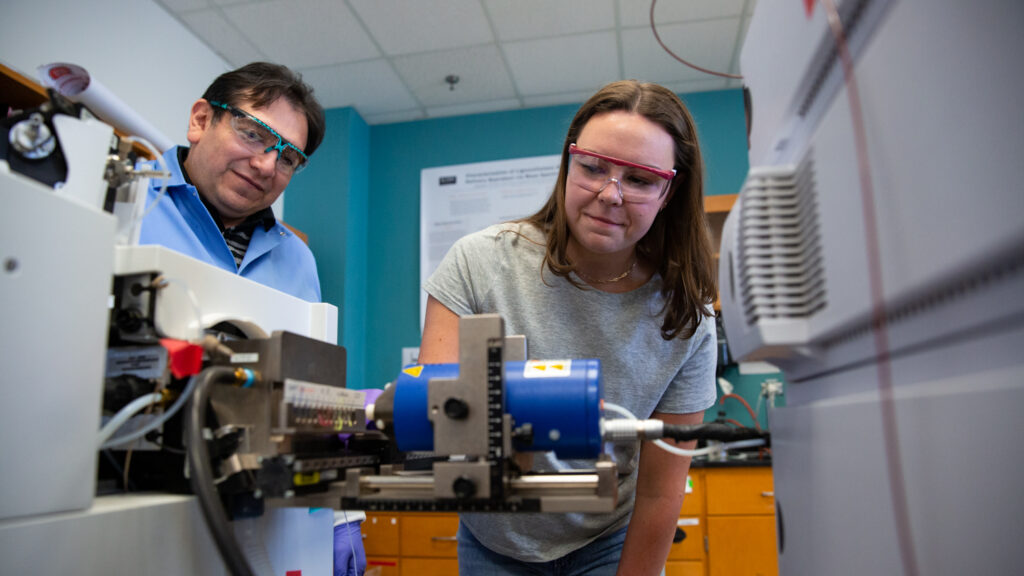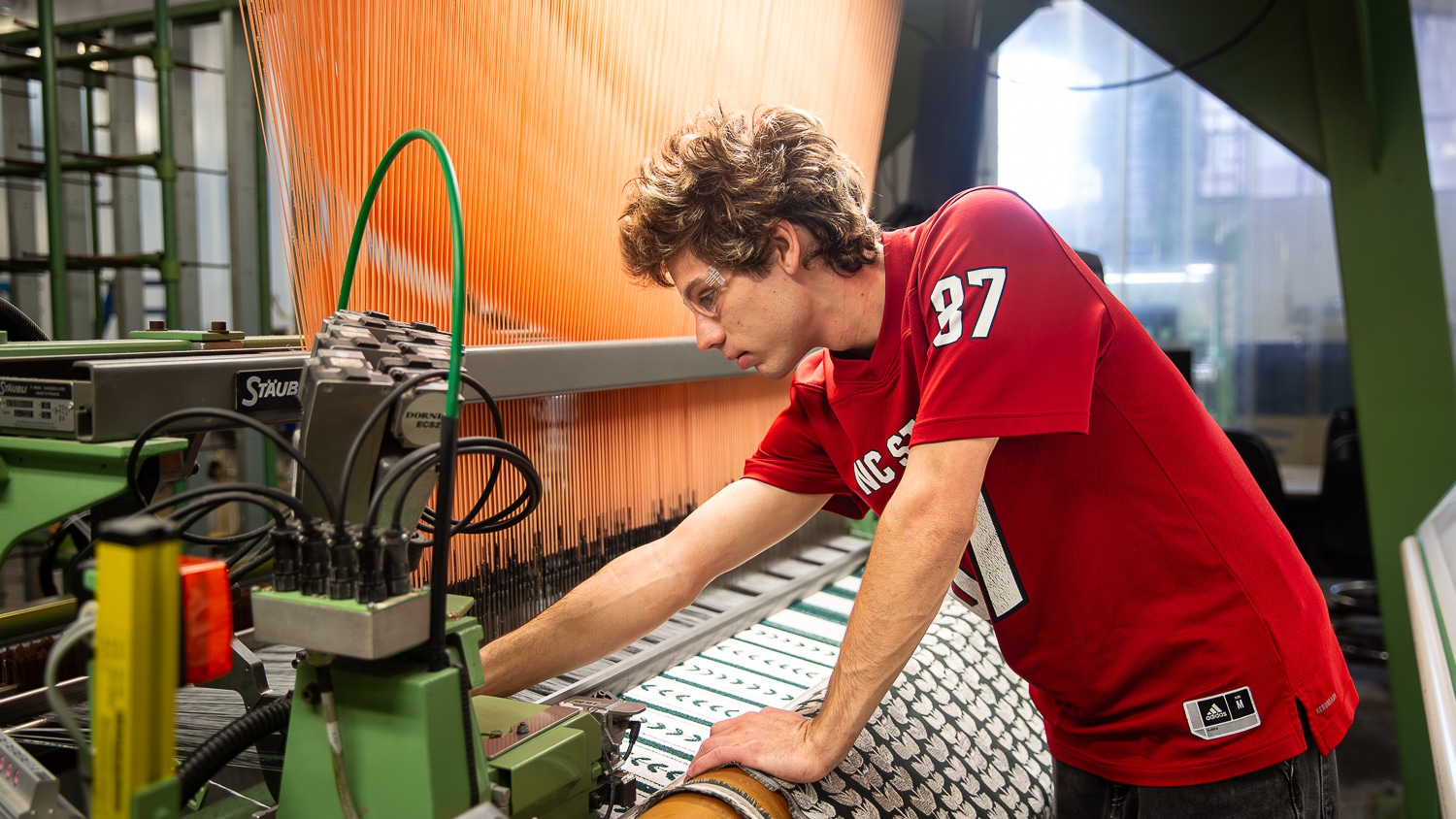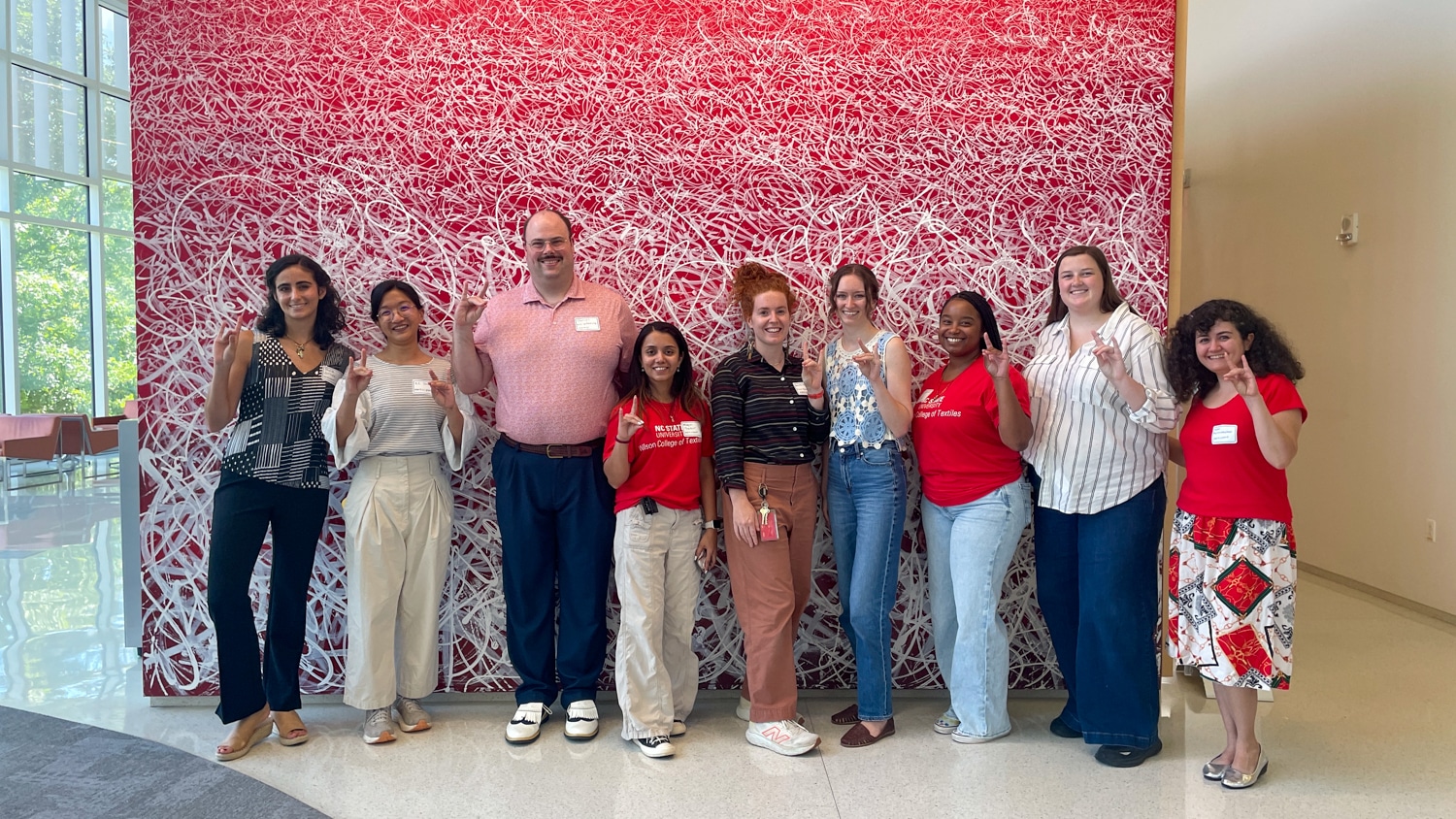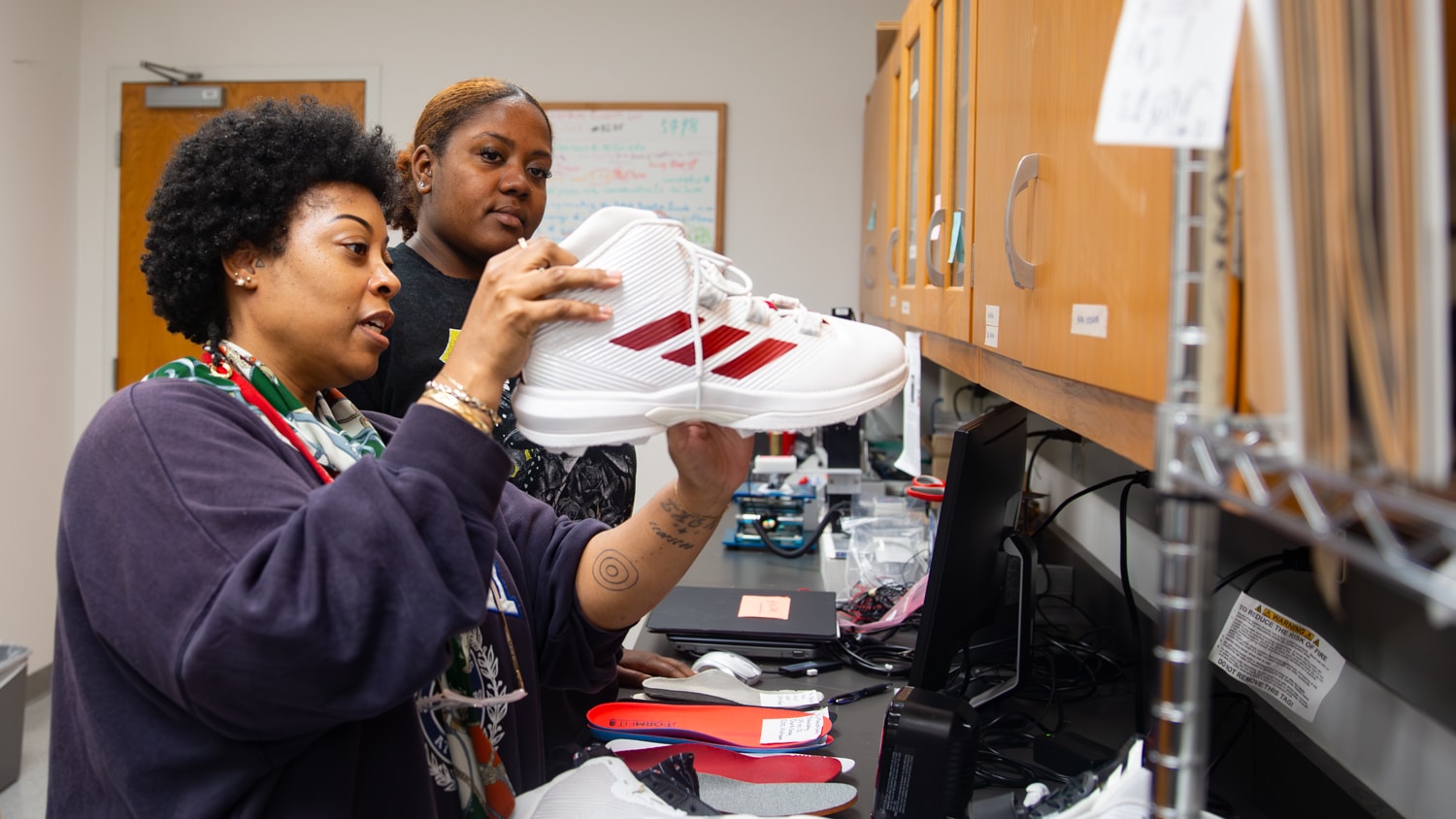Undergraduate Research
The interdisciplinary nature of textiles and our impressive student to faculty ratio translate to exceptional research opportunities for undergraduates at the Wilson College of Textiles.
By the time they graduate, it’s not uncommon for our undergraduate students to have their name listed on a published piece of research. Some gain research experience as soon as the summer before their second year of college.
As part of a lab group, undergraduate students also travel to symposiums around the world and win awards for their research presentations.
Because of the state-of-the-art equipment in our labs, centers and institutes, students not only advance science, they also become familiar with the technology and processes they’ll use in the industry or in graduate school.
Students across all of our undergraduate programs conduct research, from textile engineers to textile designers.

Here are just a few of the ways our students use textiles to tackle grand challenges:
Sustainability
- Removing dye from water
- Using fewer resources used in the dye process
- Developing new textiles from post-consumer material
Healthcare
- E-textiles that monitor health data
- Stem cell research
- Grafts, sutures, and meshes for artificial organs
Personal Protective Equipment
- Firefighter suits
- Face coverings
- Preventing absorption of dangerous chemicals

Summer in the Lab: Research Experience for Undergraduates
Every summer, the Department of Textile Engineering, Chemistry and Science hosts its Research Experience for Undergraduate (REU), which matches students with the college’s labs to work as paid research assistants.
REU participants also benefit from one-on-one guidance and mentoring from graduate students and professional development workshops.
Ready to Start Researching?
If you’re a current Wilson College student looking to get involved in undergraduate research, we’ll provide resources and guidance to help.
- TECS students: contact Department Head Jeff Joines.
- TATM students: contact Department Head Abdel-Fattah Seyam.
- NC State Office of Undergraduate Research




